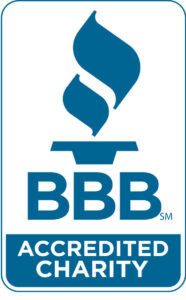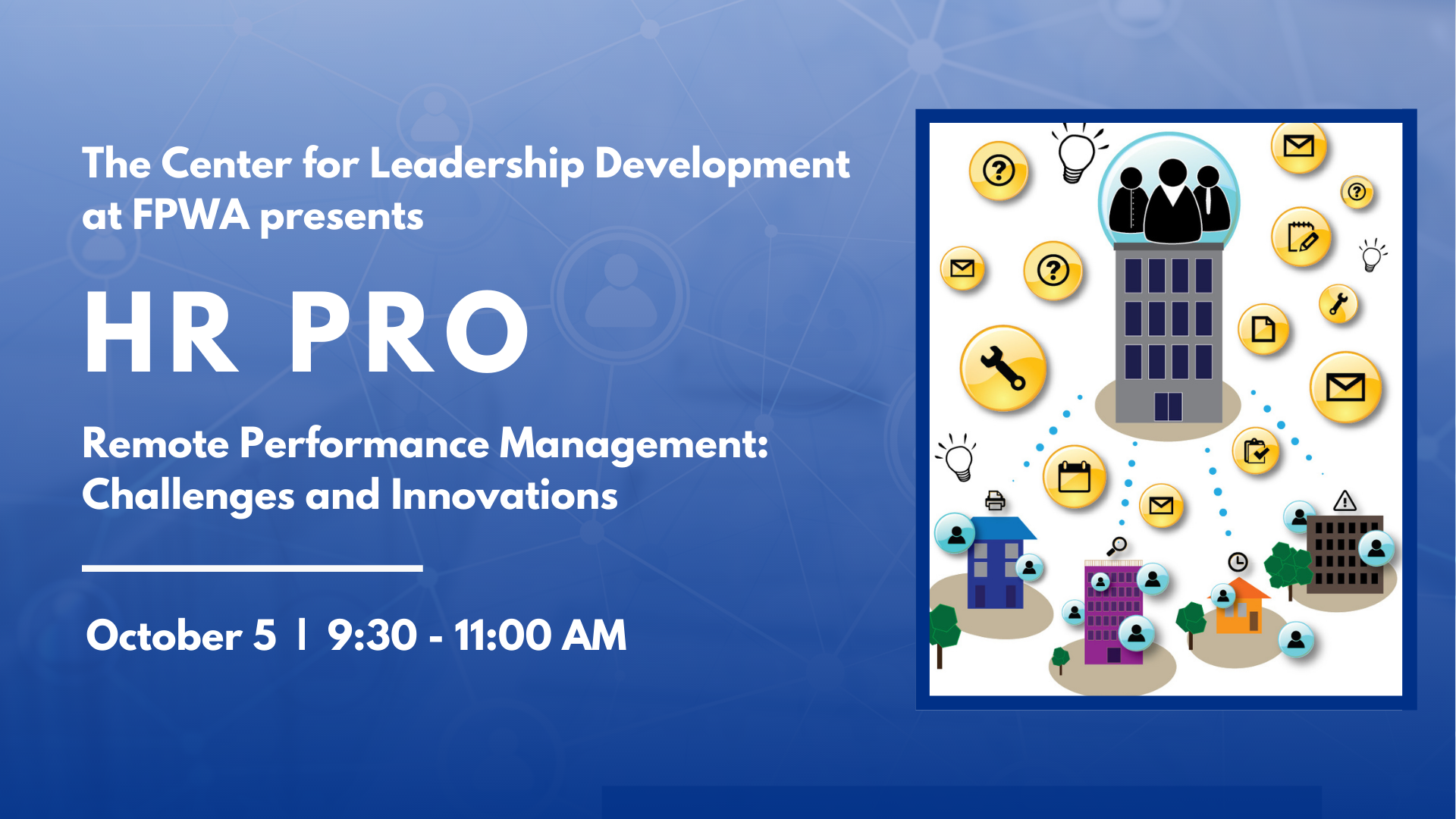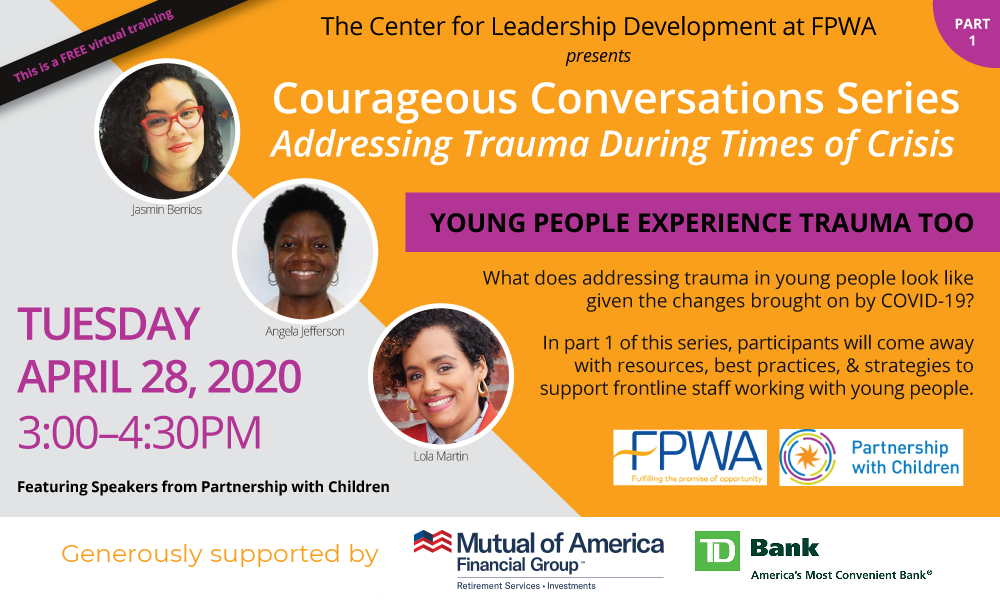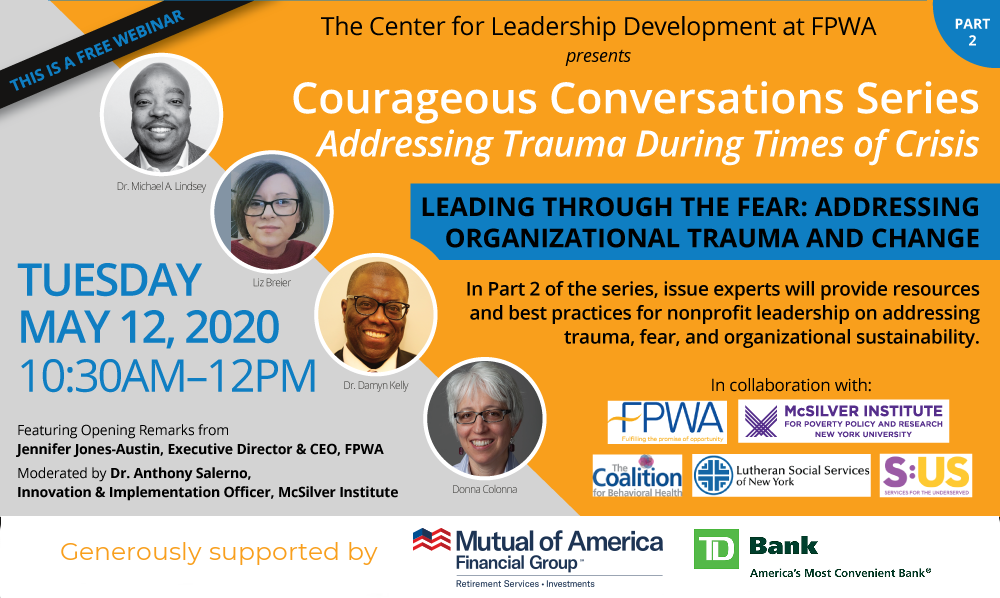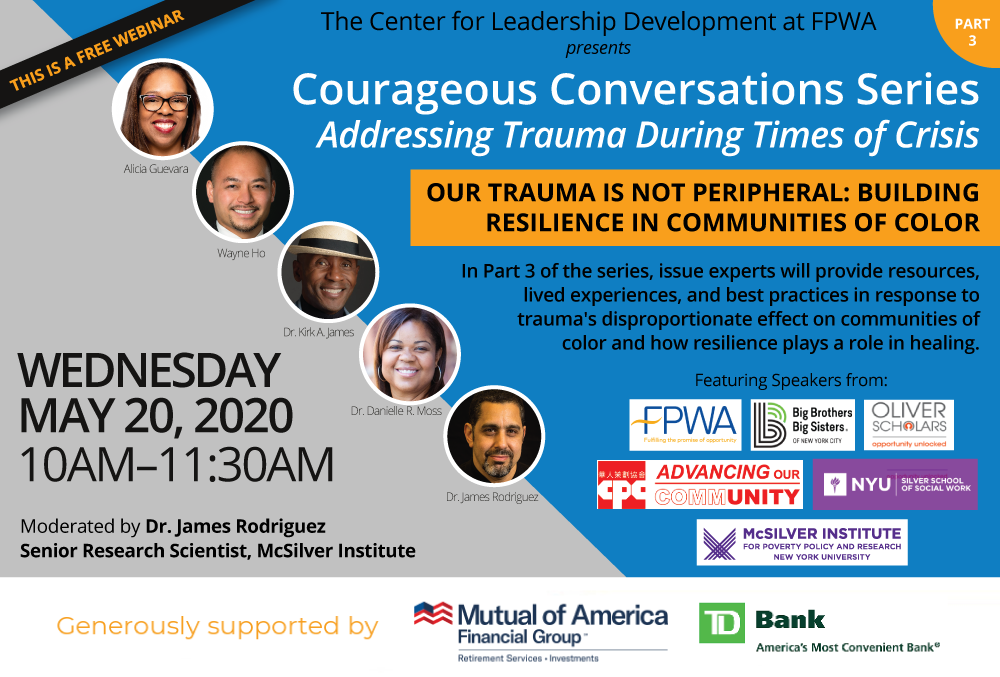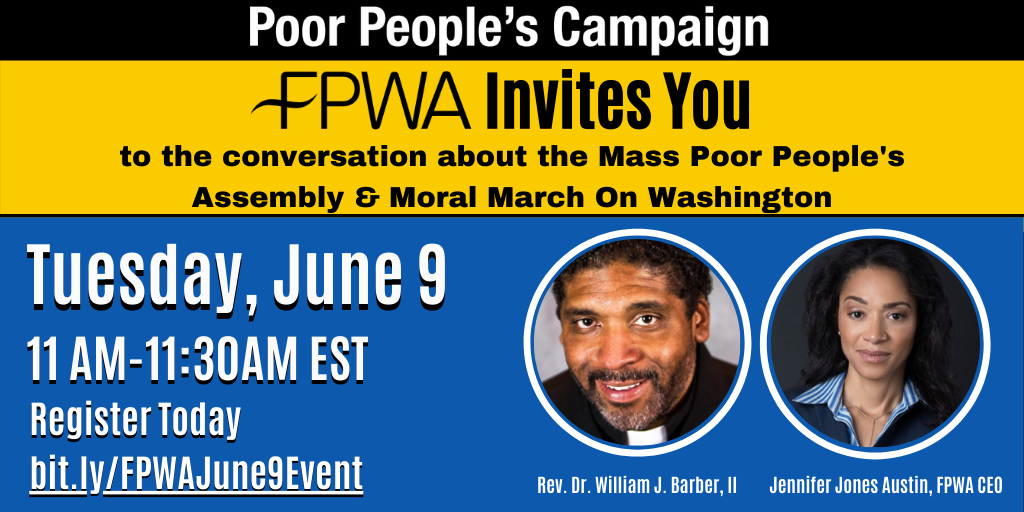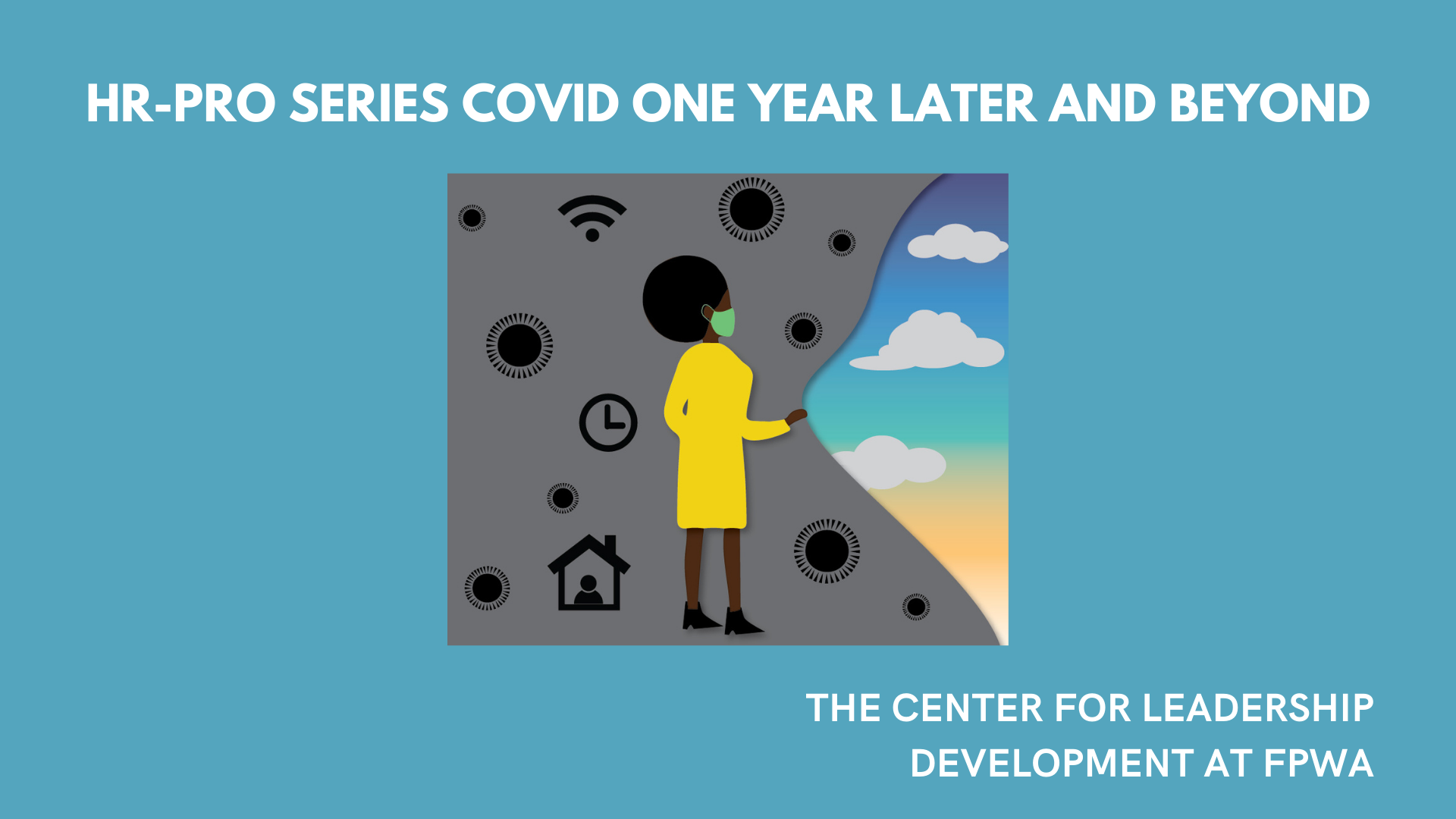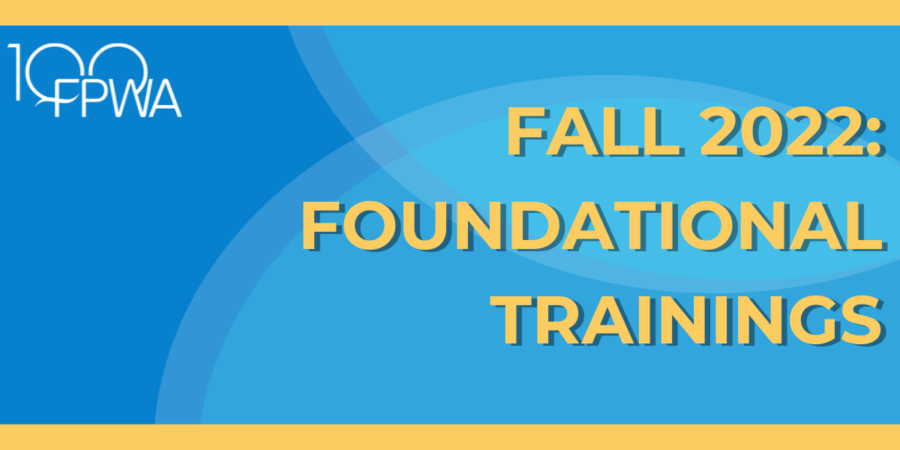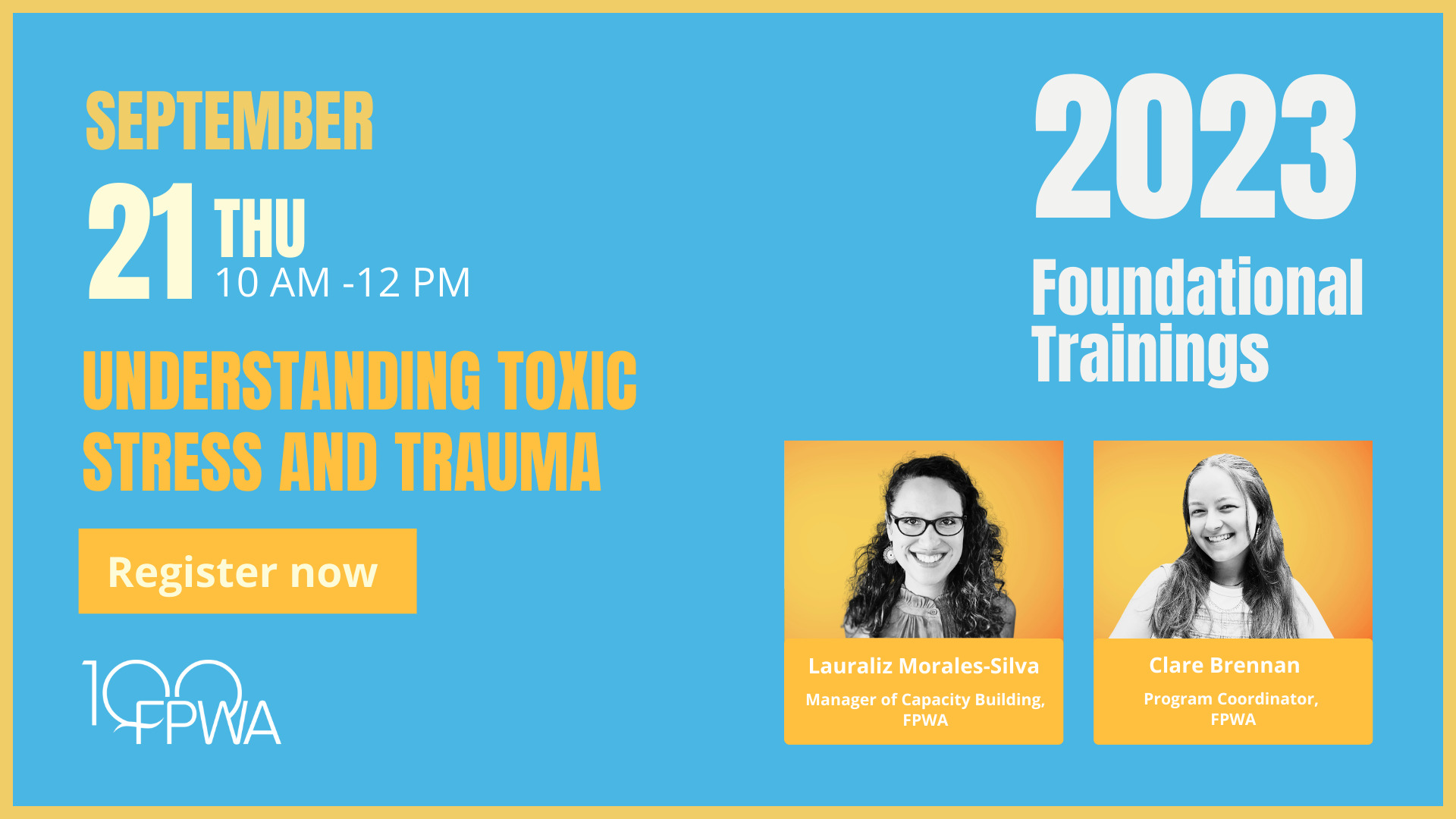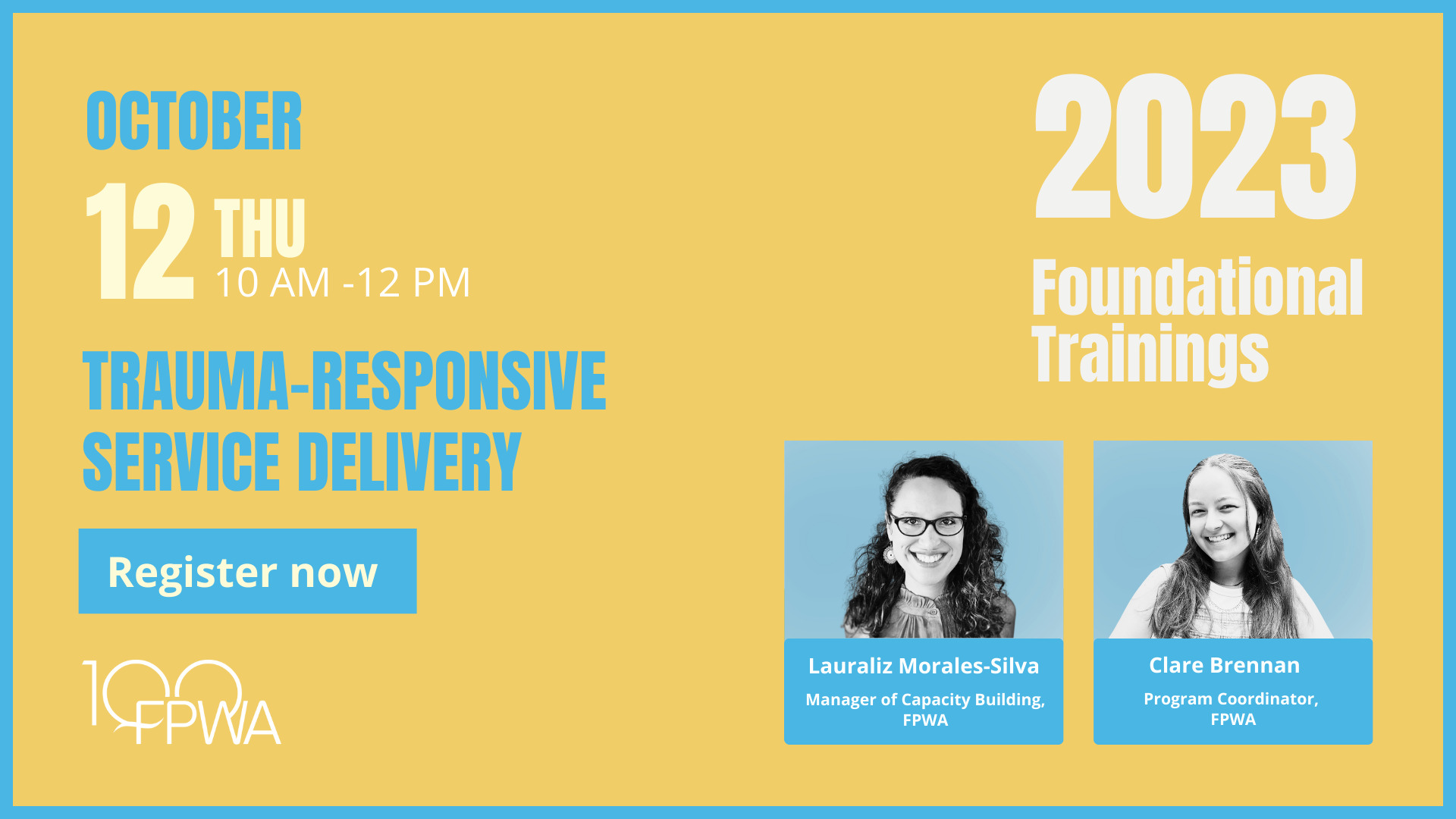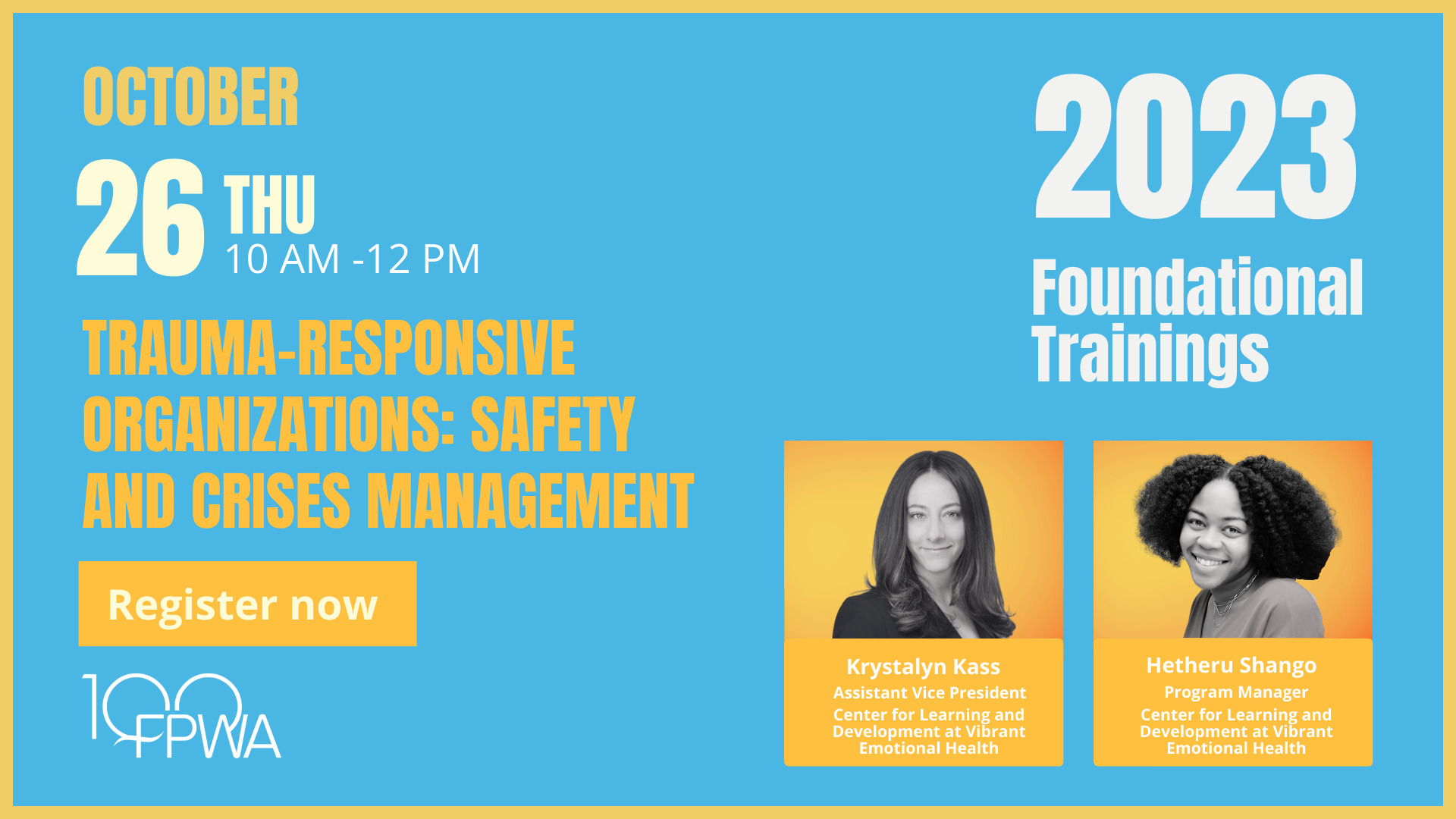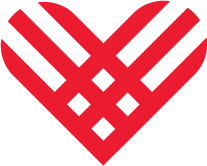Capacity Building
- Events
- Capacity Building
On-Demand Webinar – Courageous Conversations Series: Addressing Trauma During Times of Crisis Part 1
ZoomWatch Part 1 Now
On-Demand Webinar – Courageous Conversations Series: Addressing Trauma During Times of Crisis Part 2
ZoomWatch Part 2 Now
On-Demand Webinar – Courageous Conversations – Addressing Trauma During Times of Crisis Part 3
Watch Part 3 Now
FPWA Partners with Rev. Dr. William J. Barber, II to Hold a Virtual Rally on June 9 to Support the Mass Poor People’s Assembly and Moral March on Washington
https://www.youtube.com/watch?v=s0DZLmRrShg
HR-Pro: COVID One Year Later and Beyond
It is hard to believe that more than a year ago, many of us were taking our first foray into remote work and experiencing the beginning of what would become an incredibly tumultuous 12 months: Coronavirus pandemic, confirmation that sexual orientation is protected by the equal rights amendment, voices rising against systematic racism, a contentious presidential election and storming of the Capitol. 2020 brought emergency legislation from federal, state and local fronts and 2021 is doing the same. It is important for employers to be able to discern what was, what continued and what is beginning.
In this workshop, we will highlight:
• What HR needs to know now to be compliant
• What is on the horizon
• What needs HR’s attention to get best prepared for what’s to come
Two Years In: Leadership and Recovery in Times of Covid-19
While the height of the pandemic may be behind us, human services organizations continue to experience the impact of Covid-19. This three-part series aims to address some of the most common concerns that faith-based and community-based organizations are facing two years in; ensuring financial stability, leading, and managing through change, and avoiding employee burnout. Watch this three part series for tips, strategies, and an honest conversation around these challenging issues.
2022 FOUNDATIONAL TRAININGS
Join us this Fall for our 6 Foundational Trainings
Nonprofit and faith-based organizations play an integral role in supporting the needs of individuals and communities. Often, these needs stem from generational, interpersonal, systemic, and/or community trauma. To support organizations in addressing both the root causes and manifestations of trauma, FPWA offers a core set of capacity-building trainings, rooted in trauma-informed practices.
These free foundational trainings are available year-to-year and are open to both FPWA member and non-member organizations. The trainings are specifically designed to be relevant and applicable to staff at all levels and any type of role within a nonprofit or faith-based organization.
Understanding Toxic Stress and Trauma
Virtual ConveningAlthough everyone experiences stress, there is a point in which prolonged exposure to adversity can cross into trauma. Interpersonal violence, racism, systemic oppression, and/or persistent community neglect can lead to toxic stress and be experienced as traumatic. They can have severe and long-lasting negative effects on individuals and communities. This training breaks down the definition, prevalence and impact of toxic stress and trauma.
Trauma-Responsive Service Delivery
Virtual ConveningAll human services organizations, regardless of their primary mission – legal services, foster care, elder care, mental health services, housing – can benefit from a trauma-informed approach. Many of the strategies and actions are free and can be effectively used by everyone at your organization.
During this training, learn what trauma-informed service delivery actually “looks like,” and walk away with specific strategies for “what you can do” and “what you can say” when working with individuals who have experienced trauma.
Trauma-Responsive Organizations: Safety and Crisis Management
Virtual ConveningEvery fall, FPWA highlights and addresses different sections of our “Trauma-Responsive Organization Checklist.” During this session, we will focus on Safety and Crisis Management.
In partnership with Vibrant Emotional Health, we will explore trauma-informed strategies and actions for crisis de-escalation that will ensure safer interactions between human services staff and participants. Attendees will have the opportunity to practice using the CAPE Model for crisis intervention with real-world examples.
Registration is required.
Please be advised that by registering for this event, unless we hear from you otherwise, we will include you as part of our regular mailing list and you may receive solicitations from FPWA. Please also be advised that the event will be recorded by FPWA. By enrolling for this event, you hereby: (1) give consent for FPWA or any third parties to use your photograph or image in its print, online and video publications; (2) release FPWA, its employees and any outside third parties from all liabilities or claims that you might assert in connection with the above-described uses; and (3) waive any right to inspect, approve or receive compensation for any materials or communications, including photographs, videotapes, website images or written materials, incorporating photos/images of you. To revoke this waiver, please email info@fpwa.org
Stay in Touch
Join our network and learn about FPWA events and news.
All rights reserved.
LEARN MORE
ABOUT FPWA
GET INVOLVED
